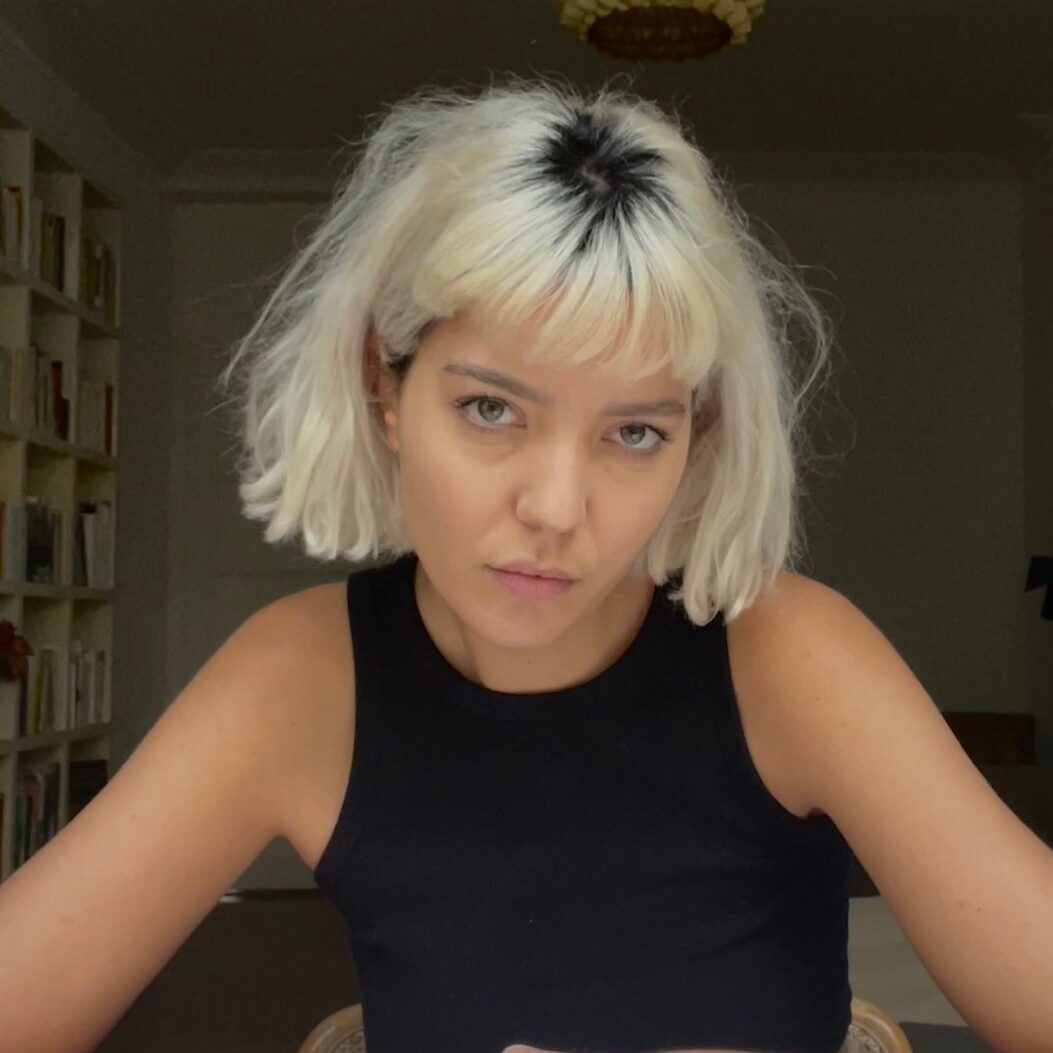Interview
Carnet Rose: cultural activism is also born at festivals
Lucrezia Perrig and Noemi Grütter interviewed by Ana Isabel Mazon

Lucrezia Perrig
Doctoral student Gender studies
University of Lausanne

Noemi Grütter
Feminist activist, DJ &
Human rights expert
In 2020, Lucrezia Perrig, Sidonie Atgé-Delbays and Noemi Grütter co-wrote the Carnet Rose. This handbook brings together the non-exhaustive conclusions of their research work carried out since 2018 as part of the Geneva festival Les Créatives. It brings together testimonials, legal resources and tools devised by and for artists and institutions in French-speaking Switzerland to combat gender inequality on a practical, day-to-day basis.
On 17 September 2023, Lucrezia Perrig and Noemi Grütter co-hosted a workshop at the networking event organised jointly by m2act and Burning Issues on gender pay inequality and the difficult reconciliation of private and professional life – two structural problems in the contemporary working world that also apply to the cultural sector. They tell us about the birth of Carnet Rose, and remind us that activism stems also – and above all – from collective meetings.
10 November 2023
How did the idea of creating the Carnet Rose come about, and how has the initiative developed since its inception?
Our initiative began following a roundtable discussion organised by the Les Créatives festival, in Geneva, in 2018 entitled «Where are the women?». The aim was to start a serious conversation on the issue of gender inequality in the various artistic sectors, and to turn it into an umbrella discussion.
This meeting proved to be an indispensable discussion forum for many women in the cultural milieu.
The festival entrusted the organisation of a new round table in 2019 to one of us. It took place a few months after the historic Swiss feminist strike in June of the same year, and had an even wider echo.
Around this second round table, workshops were organised around four central themes: sexual harassment, equality and diversity in programming and teams, equal pay, work-life balance. In each of these workshops, a legal expert answered questions based on concrete cases and suggested possible legal courses of action.
The Carnet Rose was born of the desire to keep a record of what had been discussed in these workshops. We then sent out a questionnaire to all the cultural institutions in French-speaking Switzerland, asking how and to what extent they were attempting to overcome the various inequalities. Since then, we’ve been regularly invited to present the Carnet Rose and its approach, both in academic settings and at arts festivals.
Has your process of collective consultation and gathering of different experiences, demands and proposals from the field had an impact in the cultural sector?
Since the first round table was held back in 2018, the city of Geneva has been requiring projects wishing to benefit from a contract to include confirmation that they are striving for parity. It’s a small step, but it’s something.
Following the first workshop on work-life balance in 2019, the director of Geneva-based contemporary music ensemble Contrechamps has earmarked CHF 10,000 from the association’s annual budget to finance measures enabling its employees to reconcile their family life with their profession.But despite this offer, he told us that very little of the allocated sum had been spent.
We are convinced that we need to raise awareness not only among those in decision-making positions, but also among employees, so that they feel eligible and able to apply for the measures and resources available, without feeling it will reflect badly on them.
«We need to raise awareness among management teams as well as employees, who need to feel they have the right to use the measures available to them.»
The Carnet Rose is a tool that came into being following round-table discussions organised as part of a festival, which helped identify a need, create a dynamic and even spawn spin-off initiatves – which is very encouraging! Your approach was also part of the M2ACT x BURNING ISSUES networking event, which brought together for the first time some 400 cultural players from all over Switzerland, Germany, Austria and Italy on 15, 16 and 17 September 2023 in Berne.
How would you define your role today in these ephemeral events, whether festivals or networking meetings?
At these events, we position ourselves as reporters. We’ve collected the voices recorded in this notebook, and we’re addressing professionals in the sector who are facing new instances of discrimination that we haven’t necessarily encountered before, and that we might not even have imagined.
We usually start our workshops by mentioning the figures relating to gender inequality in the cultural sector, to mobilise participants’ legitimate sense of injustice and enable them to realise the scale of these inequalities.
We then move on to a more qualitative assessment, asking participants about the measures they are taking to tackle these inequalities at their own level. We start with the premise that everyone does things in their own way, and together we try to create a platform to consolidate these initiatives.
«We’re trying to create a platform together that consolidates actions against inequality.»
What can be done to make this kind of networking event even more effective?
These meetings often trigger great creativity and an impetus to act with strong resolve. The only thing missing is more involvement from politicians, a willingness by them to listen to this collective intelligence and seize the opportunity offered by these events to gather together the various proposals put forward by players on the ground, which have been synthesised by the workshop leaders. We should try to mobilise as many political lobbying professionals as possible.
And we’re not forgetting our work with new generations of artists and cultural workers, by raising awareness in art schools and the different professional disciplines.
«The only thing missing is greater political involvement.»
Institutions are increasingly adopting charters of good practice, which seems to be a good thing. How can we ensure that they enable all workers to appropriate these tools and integrate them into their daily working lives?
Of course, we encourage each institution to draw up its own charters: inclusivity, diversity, anti-racism, feminism, sustainability etc. But we also encourage them to desacralise these written texts, which can be somewhat static, to bring them to life, adapting them to their realities and evolving circumstances. These charters often just gather dust once the people who implemented them in their institutions change job or leave the organisation. However, like most of the chapters in Carnet Rose, they would have to be rewritten almost every year to keep them up to date and reflect the complexity of each situation.
Once again, these workshops and meetings must continue to act on several fronts, encouraging all participants to place ever greater trust in collective creativity and intelligence, and giving them the impetus they need to convey both their demands and their innovative solutions to all strata of the institutional, cultural and political ecosystem.
Noemi Grütter is a feminist activist and human rights expert. Her feminist work is a source of inspiration for local, national and international institutions, as well as in clubs and on the street. With Festival Les Créatives, she co-designed and co-wrote the Carnet Rose for greater equality in the arts and culture scene. She is a DJ (DJ ALÉLÉFI) and part of the «Cats Calling Back» collective.
Lucrezia Perrig studied philosophy and political science. She is currently completing her doctorate on queer marriage in Switzerland at the Centre for Gender Studies at the University of Lausanne, under the supervision of Marta Roca i Escoda. She is co-author of Carnet Rose, the Swiss guide for gender equality in the arts, which emerged from the feminist Festival Les Créatives in Geneva.